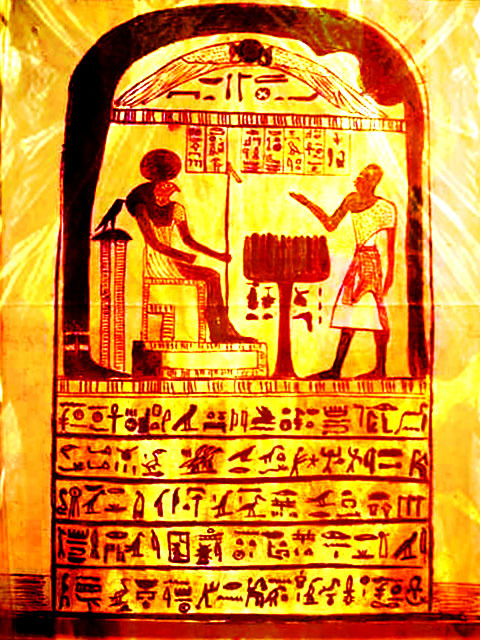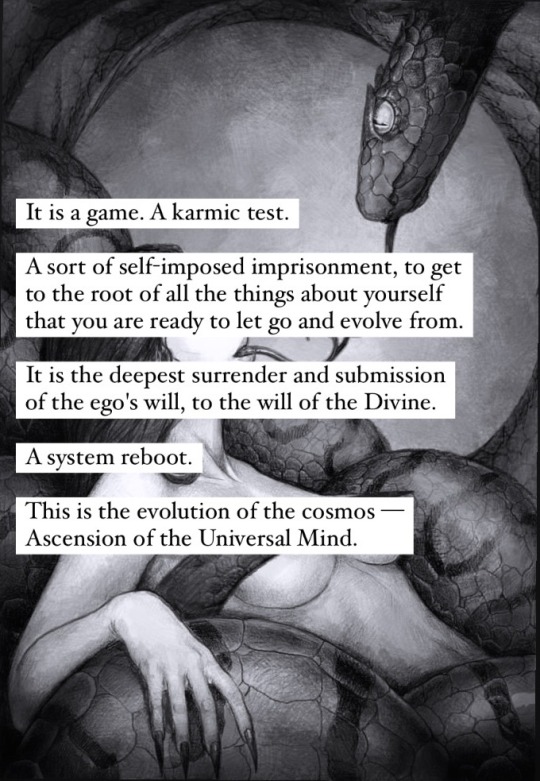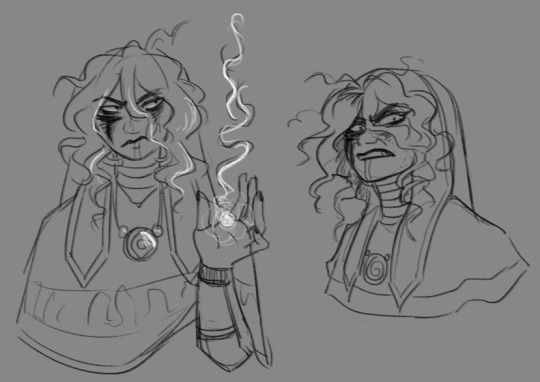#Enlightenment Era
Text

Cyrano (2021) Director: Joe Wright
“It's you, my love.” “You love the words.” “No, you. I love Cyrano. Cyrano is my love! I've always loved Cyrano...”
#film#film edit#period drama#period films#historical film#1600s france#enlightenment era#enlightenment#cyrano 2021#joe wright#cyrano de bergerac#roxanne#hayley bennett#color#color palette#half agony half queue
14 notes
·
View notes
Text
On Gretchen
Someone asked about Gretchen from Goethe's Faust, but so long ago that I don't really dare @ them anymore.
CW: Grim stuff below, relating to gender roles, reproductive rights, judicial history, child death and so on. Long post too.
So Gretchen / Margarete (etc.) was invented by Goethe. She doesn't really exist in previous versions of the Faust legend, where Faust mostly lusts after various mythological figures, demons, or men.
But in Goethe's time, the fate of unmarried mothers was a huge topic and widely discussed. See, having children outside of wedlock was basically illegal and was considered very shameful for the women who it happened to. So, fairly often, these women would hide their pregnancies, and then abandon or kill the child when it was born. This mostly affected working-class people.
And the public hated them. Obviously killing children is wrong, but people also thought that a woman killing her own child went against the very principles of womanhood and motherhood. So the women who were convicted of killing their new-born child were often punished with the death penalty.
(What were these women supposed to do? Well, just put up with the social shaming and give the child to an orphanage, where it would more likely than not die anyway.)
But it was not consensus that death was the appropriate punishment. Many people argued that child murder should get a different sentence, some out of compassion for the mother's difficult situation, others because they felt death was not enough of a deterrent compared to a loss of reputation.
Goethe himself was a jurist and discussed the question of the child murdering mother in his dissertation. That text is lost today. He also started working on the Faust material around the same time, including the Gretchen plot. So he must have had some sympathy. In the 1780s, Goethe himself was involved in a trial of a servant accused of murdering her child and he voted for the death penalty; the woman was executed. (Goethe's vote may or may not have mattered; scholars have different opinions. Consider this book review for additional info).
Either way, the Gretchen episode fits well into the general theme of Faust's adventures. Wanting to fall in love with some girl and sleep with her is quite natural and not a bad thing. But in Faust's case, it results in four deaths, and every attempt he makes to help the situation just makes things worse. Because the actual devil he's invited into his life is helping / not helping.
But Gretchen is one of the few people in this story who are not corruptible. She rejects the devil's offer to free her and goes to her death willingly. So logically, she must go to heaven, because she resists temptation and accepts justice.
But is this really the best thing to do? Is it actually fair that she must die? Is this something Goethe really believed? Couldn't she have escaped jail and the devil? Couldn't she find a happy life and repent at leisure? One wonders.
However, this aspect is also based on something that happened in the real world, namely the case of Maria Flint who was actually abducted from jail by the father of the child that she killed, and who actually chose to come back and be executed.
Anyway I can't help but feel this story about a very real and horrible problem of jurisprudence became the foundation of the whole trope of dudes being saved by the Eternal Feminine, which plagues all works of the 19th century from ETA Hoffmann through Don Juan Tenorio to the way Richard Wagner resolves literally every one of his operas. Woman-hating behavior. Annoying. And all because Goethe felt bad about killing someone.
13 notes
·
View notes
Text
The origins of the Illuminati trace back to the late 18th century, amid a period of Enlightenment that emphasized reason, science, and skepticism of traditional authority. Founded on May 1, 1776, by Adam Weishaupt, a professor of canon law at the University of Ingolstadt in Bavaria, the group initially called itself the Order of the Illuminati. Weishaupt sought to promote enlightenment ideals and counteract the influence of religious and political tyranny.
The formation of the Illuminati occurred in the context of significant social and intellectual upheaval. The Enlightenment, with its focus on rationality, individual liberty, and separation of church and state, was sweeping across Europe. Weishaupt envisioned a secret society that could influence political decisions and promote progressive ideas subtly, away from the watchful eyes of authoritarian regimes and religious institutions.
The Illuminati aimed to educate its members in reason, philanthropy, and other secular values so they could influence political and societal changes from within. The society was structured hierarchically, similar to the Freemasons, with different levels of secrecy and initiation. This hierarchical structure allowed Weishaupt and his close associates to control the organization while keeping the identities and activities of lower-level members relatively obscure.
The order rapidly expanded, attracting influential members from various sectors of society, including academics, literary figures, and politicians. It purportedly infiltrated other organizations, such as the Freemasons, to extend its reach and influence. However, this rapid growth and the secretive nature of the Illuminati eventually drew the attention of the Bavarian authorities.
In 1784, the Bavarian government, alarmed by the potential subversive activities of secret societies, issued an edict banning all such organizations. By 1785, the Illuminati was effectively disbanded as members were arrested, and their documents seized. Although the order's active existence was short-lived, the mythos surrounding the Illuminati persisted.
Over the centuries, the Illuminati has been the subject of numerous conspiracy theories, suggesting that the group continued to operate clandestinely, orchestrating major historical events and exerting control over global affairs. These theories often lack credible evidence and are fueled by the order's initial secrecy and ambitious goals, combined with a general suspicion of unseen forces manipulating world events.
In summary, the Illuminati was a product of the Enlightenment, founded by Adam Weishaupt in 1776 to promote secular and progressive ideals through a secret society. Although officially disbanded by the Bavarian government in the 1780s, the legacy and legend of the Illuminati have endured, continually re-emerging in popular culture and conspiracy theories.
#illuminati#History#Enlightenment#Secret societies#conspiracy theories#Adam Weishaupt#18th Century#Bavaria#Freemasons#Secret History#Enlightenment Era
2 notes
·
View notes
Text
Love Under Will: An Introduction to Thelema and Its Antecedents
When Aleister Crowley coined the term “the aim of religion, the method of science,” he was advancing the tradition of humanism for the reunion of science and religion into what Eliphas Levi called the catholic or universal religion of humanity. The aim of scientific illuminism is the advancement of uniting these seeming opposites into a fabric whose unit, based on scientific analysis and…

View On WordPress
#Abbey of Theleme#Aeon of Horus#age of Reason#Aleister Crowley#Alphonse Louis Constant#Argentum Astruum#Augustine of Hippo#Bavarian Illuminati#Early Church History#Early Church Theology#Eliphas Levi#Enlightenment era#Francesco Colonna#Francois Rabelais#Freemasonry#Gershem Scholem#greco-egyptian religion#Horus#Humanism#Hypnerotomachia Polyphilo#Isaac Luria#Isis#Karl von Eckhartshausen#Liber Oz#Lurianic Kabbalah#Osiris#Philosophy#Religion#Renaissance era#Renaissance Humanism
1 note
·
View note
Text
makes me a little sad when star trek ignores IDIC. like. vulcans are logical. that is true. But 'logical', for vulcans, does not amount to 'without compassion,' and it definitely doesn't amount to 'racial superiority.' Belief in 'infinite diversity in infinite combinations' should NOT result in the weird racist/speciest stuff we're getting in some of the newer treks. It does make sense that some vulcans are discriminatory. They're still flawed. But that should not be common or expected, like it seems to be in SNW. If it is, then it's a race of hypocrites, which. doesn't seem very true to Star Trek's message.
I think TOS Spock does a pretty good job of embodying this. Not always, it was the 60s, after all, but mostly. He was often trying to find non-violent routes, and get by without killing - even if they were in danger or had already been attacked. (See: the mugato, and the horta (until Kirk was the one in danger, lmao. t'hy'la > IDIC), the Gorn ship). Kirk, in his eulogy, calls him the most human soul he's ever known, and I've always read that as Kirk calling out Spock's overwhelming compassion.
It's just so much more interesting when Vulcans get to be radically compassionate. I want them to believe that everything and everyone has value. I want them to respect all ways of being. I want them to find ways for even very non-humanoid aliens to exist unfettered in society. I want them to see hybrids and think that it's amazing. Also, like, disability rep. I want Vulcans to have The Most Accessible Planet and available resources because they want everyone to feel accepted and valued. It makes for better characters and more interesting stories.
#tbh feels like some weird racist/misogynistic enlightenment-era philosophy coming through when they do that. y'know?#like 'oooh if you're fully logical you're BETTER than those who have EMOTIONS like WOMEN do'.#and the paramount execs are eating it up like 'yesss logic means being an ASS to people LESS LOGICAL than you!'.#like really guys. c'mon#like it makes sense in TAS that spock would get bullied by some kids. kids bully. that's common. makes sense that even vulcan kids bully#but if ADULTS are OFTEN doubting spock because he's half-human? that just kinda sucks. if i may it's even illogical#IDIC for me but not for thee type thing.#i think that being discriminatory should be a source of shame on a vulcan's house.#i think vulcans should adore learning about other cultures#star trek#vulcan#star trek vulcan#vulcans#vulcan culture#spock#star trek tos#tos#star trek the original series#sorry for my lack of mention of other major vulcan characters. I am so so behind in my star trek watching.#from what i've heard tuvok is also a good example. i know next to nothing about t'pol so couldn't say for her.
749 notes
·
View notes
Text
Which Underrated Woman from History are You?
Finally got around to making a uquiz featuring six of my favourite women from history! You can either get someone from the French Revolution, Roman Republic (I know, how unexpected!) or from 1700s/early 1800s.
Featuring scientists, writers, politically active icons and a few poets whose lives were intertwined with theirs, as a treat!
Enjoy and thanks everyone for sharing! ✨
#frev#french revolution#ancient rome#roman republic#history#tagamemnon#uquiz#tumblr quiz#which are you?#age of enlightenment#1700s#1800s#romantic era#18th century#19th century#émilie du châtelet#fulvia#clodia#mary shelley#ada lovelace#lord byron#literature#women's history#uquiz link#personality quiz#quiz tag#percy bysshe shelley#lucile desmoulins#camille desmoulins#catullus
256 notes
·
View notes
Note
Ever think about pregnant robot?
constantly
#ask and mew shall receive#Anytime I'm asked this Its like a litmus test to see if you've been around for that enlightened era
107 notes
·
View notes
Text
Ok I'm probably going to regret reinventing 17th century European religious philosophy here but:
Ludinus's issue with the gods as stated to Imogen and Fearne (and I will state right now that we know he was lying or deliberately misleading at points in that conversation so I don't exactly take him at his word, but let's assume he does mean this) is that they did not prevent the Calamity. I have the following questions.
Does he have any loyalty/feelings about the Titans given that they would have killed all the people in the era of the Schism, ie, the gods averted that Calamity? My guess is no, which means that whole avenue of discussing the Titans was something of a dead end.
How should Calamity have been averted? The Prime Deities during the Age of Arcanum largely let people do what they wanted, which is what led to one of those mortals releasing the Betrayer Gods. Should the gods have struck down Vespin Chloras before he actually did anything, Minority Report style? Can the gods even predict based on the actions of a single individual or small group, because my guess is they can't, particularly since within the current stream of gameplay they absolutely cannot [ie, the reason the Changebringer can't tell FCG to stay or run is because Matt Mercer is the Changebringer and he doesn't know how people will roll; you do need to consider the medium here]. But if they could: so you think they should strike down mortals on the basis of thoughtcrimes? Or control them? In that case, why is Aeor a problem? There's a lot you can argue is justified once you permit the gods to override free will and kill people over mere potential for catastrophe.
On that note, Laerryn both was an unwitting architect of the Calamity (shorted on energy and then killed the Tree of Names, which served as a core planar defense system) but also averted the worst of it. Did the lives she saved by preventing the rise of Rau'shan and Ka'Mort outweigh the lives she took by destroying the Tree of Names? How should the gods have reacted?
Should, perhaps, the gods have all sealed themselves away earlier - perhaps post-Schism? If so, then the issue isn't the Divine Gate, now is it? Should the gods intervene or not intervene? Should they remove themselves or no? It feels like the issue isn't that they distanced themselves so that they can do less in the world, particularly if you wish to kill them, but that you really want to fucking kill them and they made that somewhat more difficult.
How do we know the gods (for example) didn't save Laudna? She was hanged and she's still alive; Morri would probably count this as saving her and I don't see the same desire to wipe out all Archfey. [real talk I find most discussion of Laudna specifically to be...incomprehensibly ignorant in its refusal to acknowledge that everything about it is player agency related, whether it's the story that the cast played out for Vox Machina or the decisions Marisha specifically made in creating the character, ie, do you think Matt should have said "well you can't play a Hollow One because that would mean the gods didn't save you" not to mention the fact that again, we are playing this within a game system where the existence Deus Ex Machina would in fact fucking suck ass; but even setting aside those reasons why this argument is stupid, it's still stupid. It's like a layer cake of stupid.] Again: do you want more intervention or less? Killing them guarantees less.
I'm assuming the problem with the Calamity is the vast loss of life, in which case, what's the math on how many people have been killed by the Vanguard or Imperium in the pursuit of unleashing Predathos? How many more will die?
If the release of Predathos doesn't result in the immediate demise of all the gods, and the Divine Gate is down, why isn't this a recipe for Calamity 2? What was the motivation for killing the gods again?
Should we kill mortal diviners who do not do all within their power to stop terrible things that may come to pass? If the issue is that some people have power without working for it, why haven't we killed all the sorcerers?
Should we be listening to a single word from someone who consumes random fey to live longer, and that's just the start of the CVS receipt of atrocities?
Is there a point where one's deeply held beliefs due to one's own personal trauma become invalidated due to one's actions as a result of that trauma? If so, why is the limit for Orym "is okay with killing people who are trying, directly, to kill you (which, frankly, isn't even a trauma response, that's just called not wanting to die, which I highly recommend as a personal philosophy), and gets upset when people defend those knowingly collaborating with his family's murderers" and the limit for Vanguard generals "family abandonment/just. buckets of murder of innocents./child soldier recruitment in multiple different contexts/eating fey as biohacking/destroying an entire city and the surrounding forest for hundreds of years (ongoing)/imperialism in multiple different contexts/I was going to make a gallows humor joke about how while neither exist in-world they've violated the Geneva Convention AND the IRB for testing on human subjects multiple times over but actually those both are in fact written in a lot of the same blood/probably some others that I'm forgetting"
#i feel ultimately a lot of this fandom debate boils down to yes this is obviously fiction#but like within the fiction can you sketch out the implications of your argument or is it just a lot of abstract ideals that can't coexist#I don't actually expect answers to these; obviously the point is if you think there is an easy one there isn't#anyway i'm like if an enlightenment era polymath were a religiously observant agnostic who used the phrase fucking suck ass#cr spoilers#cr tag
79 notes
·
View notes
Text
ao3 tags have morphed the meaning of Angst so much it's basically synonymous with whump now
#misled again and again. was expecting intellectual discussion of enlightenment era existentialism#got trembling blorbo instead#for shame#/s
74 notes
·
View notes
Note
body hair on women 👍👍👍👍
hell yeah brother 🔥🔥🔥💥💥❤️🔥❤️🔥
#talkin#all the comments ive gotten on that#and the body type hcs#have been rly positive and affirming#which id like to take as a sign of a more enlightened and tasteful era but is probably just a sign that#2024 baldur’s gate 3 fans have better taste than 2017 overwatch fans#which says literally nothing. the bar is abyssopelagic. the bar can not be seen at such depths#asks
53 notes
·
View notes
Text

#the divine cosmic play of consciousness#Adam and Eve and the apple tree#paradise is within you#spirituality#ascension#enlightenment#christ consciousness#new earth#age of aquarius#new age#my art#dark goddess era
85 notes
·
View notes
Text
You've read a book named Women in Power: Marie-Therese, Empress of Austria 1717-1780 so you will obviously love Gorbachev's autobiography

Never change, Goodreads
251 notes
·
View notes
Text
Not to start shit but there's no non-misogynistic explanation for hating Pattie or Jane
#i guess you could say the same about cyn or mo but no one seems to hate them#it's just the women who stand up for themselves who we want to villify#because omgosh you not wanting to be treated like absolute shit really hurt Paul's feelings :((((#bc as a woman it's your calling to absorb cruelty from ✨special✨ men so they have more time and mental energy to be special little boys#sorry i had an irl conversation about jane that filled me with rage#saying you wouldn't have left 1960s era paul doesn't mean you're super nice and loving and special and better than jane#you're not a loving beacon of tender femininity#you have low self esteem#just the way ppl try to twist it to make jane a bad person just for wanting some basic decency and respect....#if she and pattie did a bunch of fucked up shit that i dont know about please enlighten me#bc all the judgement i see comes from unhinged Beatles fans who can't accept their fav has a history of treating women like shit#(and that they probably continued to have those tendencies even in their fairytale romances)#the beatles#jane asher#pattie boyd#paul mccartney#george harrison#op
23 notes
·
View notes
Text
benjamin rush was such a fucking g. like, he was anti-slavery, rejected the idea that non-white races were biologically inferior, gave lewis and clark opium for anxiety, AND he killed george washington???? king shit.
#granted. he didn’t think black people were biologically inferior because he thought that blackness was a genetic disease but HEY!!!#that’s FAR from the worst enlightenment era take on race#benjamin rush#founding fathers#amrev#history#winsome’s wailings
30 notes
·
View notes
Text

Mildly deranged witchpriest of Rahab. I needed a warmup and wanted to try my hand at drawing him again
#lok oc#nephah#lomart#art#oc#depending on the era he might have become the prophet class in nosgoth#as it stands he is not haha#i like the idea of being a follower of azimuth though before she got corrupted#not that I trust she wasnt without a sadistic streak before that#but hoooly hell guys the prophets are fucking terrifying#shoutout to malus who saw a blood fountain with black blood and was like yo i gotta taste that#and fell into a year long coma only wake up enlightened af#legacy of kain#i guesssss
15 notes
·
View notes
Text
lied to my parents about taking a philosophy class instead of a religion class bc they would’ve been weird about it but I had to deal with lying about what I’m learning about in the class. I panicked and said FREUD!
27 notes
·
View notes